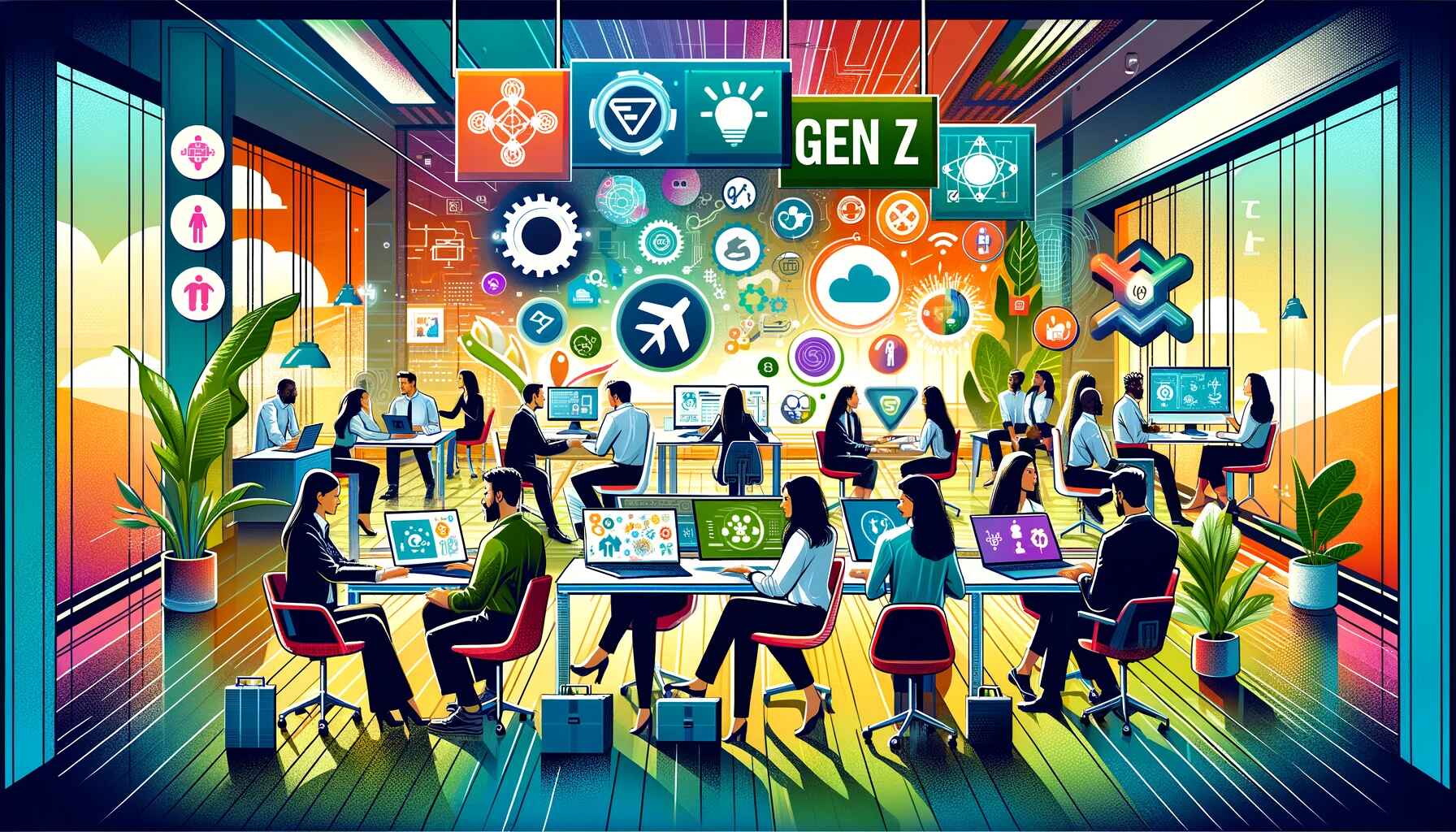Gen Z and the Future of Work: What to Expect in the Workforce by 2025
As Millennials continue to dominate the American workforce, a new generation is quickly rising to prominence: Generation Z. Born between 1996 and 2012, this cohort includes today’s high schoolers, college students, and most individuals in their 20s. With Baby Boomers and now Generation X retiring in increasing numbers, Gen Z has already overtaken Boomers in the workplace, making up approximately 18% of the U.S. workforce. By 2030, their share is expected to grow to 30%.
Gen Z’s entrance into the professional world is transforming the workplace, bringing new expectations and priorities. Their focus on stability, financial security, and alignment with company values makes them a distinctive generation. They value competitive pay, sustainable work-life balance, and employers who are committed to making a positive societal impact. Here are some key trends to anticipate as Gen Z continues to reshape the workforce in 2025.
1. A More Competitive Job Market for Early Talent
The job market for early career professionals is expected to grow increasingly competitive in 2025. Despite economists projecting a bullish outlook for the U.S. economy, job availability is declining. This has created a sense of pessimism among the class of 2025, with nearly 6 in 10 expressing concerns about starting their careers. Among these, 63% cite intense competition for jobs as their primary worry.
This environment will push Gen Z job seekers to adopt greater flexibility in their career paths. They are likely to explore opportunities across a broader range of companies, industries, and geographic locations. For example:
Broader Industry Appeal: Fields like financial services, government, and manufacturing are increasingly attracting computer science graduates who may have otherwise pursued traditional Big Tech roles.
Affordable Locations: Cities like Houston, Atlanta, Charlotte, and Dallas are becoming more appealing due to their lower cost of living compared to expensive hubs like New York and San Francisco.
This shift benefits employers in sectors and regions that have historically struggled to attract top talent.
2. The Revival of the Office
The remote work revolution, which surged during the pandemic, is starting to fade. On platforms like Handshake, only 4% of job postings in 2025 specify remote roles—a significant drop from two years prior. However, Gen Z isn’t simply choosing between remote and in-office work; they prefer hybrid models that offer flexibility and autonomy.
Given the choice, many Gen Z employees opt for the office to foster camaraderie, receive mentorship, and build workplace relationships. Employers are recognizing this trend, with nearly 1 in 5 job postings offering hybrid options. In-person interactions remain essential for networking, team-building, and professional development, making office attendance more appealing to this generation.
3. Blending Learning and Work
Gen Z’s confidence in their skills doesn’t overshadow their awareness that the job market demands continuous learning. They recognize the need to acquire additional technical and durable skills to stay competitive. This learning mindset defines how they approach professional development:
Upskilling on the Job: Rather than leaving their jobs to pursue higher education, Gen Z integrates learning into their work lives. They seek certifications, technical training, and skill-building opportunities while employed.
Employer-Supported Growth: Nearly two-thirds of job seekers in 2025 consider upskilling opportunities a vital factor when evaluating job offers. Employers who invest in employee development programs will have a competitive edge in attracting and retaining Gen Z talent.
By blending learning with work, Gen Z positions themselves as adaptable and valuable contributors to their organizations.
4. A Demand for Purpose and Values Alignment
Gen Z’s emphasis on values-driven employment is reshaping how companies approach social responsibility. They want to work for organizations that demonstrate a commitment to making a positive impact on society. This includes:
Sustainability: Companies prioritizing environmental initiatives appeal to Gen Z’s eco-conscious mindset.
Diversity and Inclusion: Gen Z expects their workplaces to reflect and promote inclusivity.
Ethical Practices: Transparency and integrity in business operations resonate strongly with this generation.
Employers that authentically align their mission and practices with Gen Z’s values will find it easier to attract and retain top talent.
How Employers Can Adapt
To thrive in the evolving workforce, employers need to meet Gen Z halfway. This involves:
Creating Flexible Work Environments: Hybrid models and flexible schedules cater to Gen Z’s desire for autonomy.
Fostering Connection: Providing mentorship programs and opportunities for in-person networking helps build relationships and camaraderie.
Investing in Development: Offering continuous learning opportunities ensures employees feel supported and prepared for future challenges.
Aligning with Values: Demonstrating a commitment to societal impact, diversity, and ethical practices builds trust and loyalty.
Conclusion
Generation Z is transforming the workforce with their unique expectations, priorities, and values. By 2025, their presence will be felt across industries and workplaces worldwide. Employers who understand and embrace these shifts will be well-positioned to attract, engage, and retain this dynamic generation. With their focus on flexibility, learning, and purpose, Gen Z is not just entering the workforce—they’re shaping its future.









